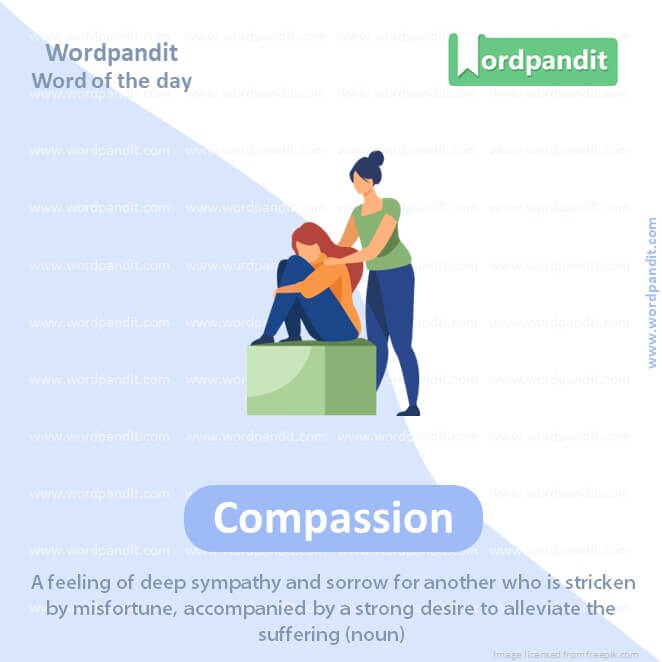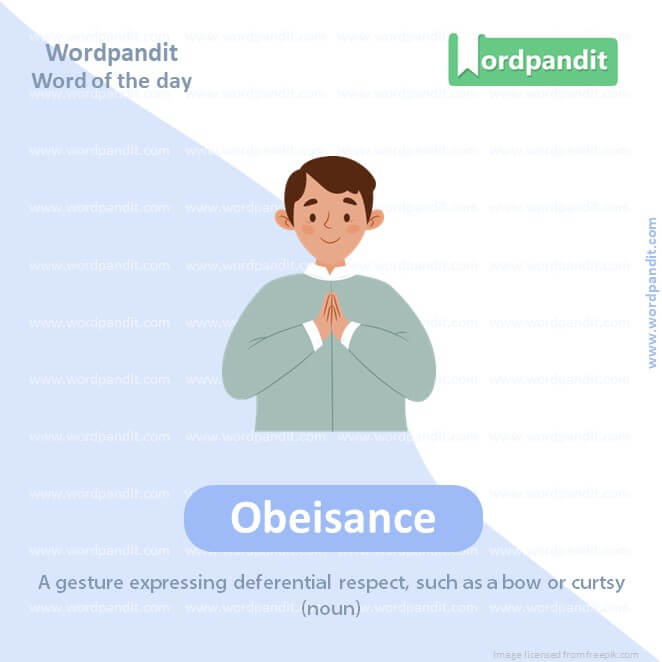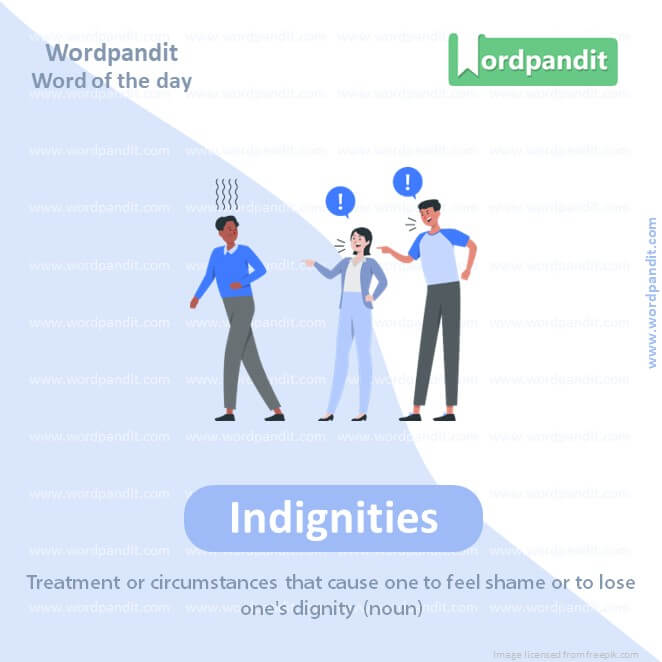Daily Vocabulary Words: List of Daily Used Words
Hi there. Welcome to this special section @ Wordpandit.
Our endeavour here is straightforward: highlighting important daily vocabulary words, you would encounter in The Hindu. This is your repository of commonly used words; essentially, we are posting a list of daily used words. Hence, this has significant practical application as it teaches you words that are commonly used in a leading publication such as The Hindu.
Visit the website daily to learn words from The Hindu.

WORD-1: Exceptionalism
CONTEXT: I had characterised the grant of remission to the 11 gang-rape and murder convicts in the Bilkis Bano case as an ‘injustice of exceptionalism’.
SOURCE: The Hindu
Explanatory Paragraph: Imagine if someone thought they were super special and different from everyone else in a good way, like having superpowers that no one else has. That idea is called “exceptionalism.” It’s when people believe they are unique or better than others because of who they are or where they come from.
MEANING: The belief that something is exceptional, especially the belief that a
country or culture is superior (noun).
PRONUNCIATION: ek-sep-SHUH-nuh-liz-um
SYNONYMS: uniqueness, superiority, distinctiveness, specialness, singularity
USAGE EXAMPLES:
- American exceptionalism is a topic often discussed in political debates.
- He has a sense of personal exceptionalism that makes him confident in his decisions.
- The idea of exceptionalism can lead to national pride.
- Critics argue that exceptionalism can foster unhealthy attitudes towards other countries.
WORD-2: Pervades
CONTEXT: the exceptional nature of injustice that pervades Bilkis Bano’s struggle, the Supreme Court is rightfully being lauded for upholding the rule of law.
SOURCE: The Hindu
Explanatory Paragraph: Think about when you spray a little perfume and soon the smell spreads all over the room. That’s what “pervades” means. It’s when something spreads to every part of something else, like a smell filling up a whole room.
MEANING: To spread through and be noticeable in every part of something (verb).
PRONUNCIATION: per-VAYDZ
SYNONYMS: permeates, infuses, saturates, fills, imbues
USAGE EXAMPLES:
- A sense of excitement pervades the crowd at the concert.
- The fragrance of flowers pervades the entire garden.
- Fear pervades the atmosphere of the haunted house.
- Happiness pervades their home during the holidays.
WORD-3: Reformative
CONTEXT: Prison is a State subject. As a result, prison rules of each State identify certain reformative and rehabilitative activities that the prisoners can undertake in order to earn remission in the form of days.
SOURCE: The Hindu
Explanatory Paragraph: Imagine you have a toy that’s broken, and you try to fix it so it’s even better than before. When you make something better by changing it, that’s being “reformative.” It’s like improving or fixing things to make them good again.
MEANING: Intended to make improvements or corrections to something, usually referring to systems or policies (adjective).
PRONUNCIATION: re-FOR-muh-tiv
SYNONYMS: corrective, improving, rectifying, ameliorative, remedial
USAGE EXAMPLES:
- The reformative policies helped improve the education system.
- He played a reformative role in the community service organization.
- Their approach is highly reformative, aiming to change old methods.
- The new laws were seen as reformative steps toward greater fairness.
WORD-4: Recurrence
CONTEXT: These include examining whether the offence is an individual act of crime without affecting the society at large; chance of recurrence of crime; whether the convict has lost their potentiality in committing crime
SOURCE: The Hindu
Explanatory Paragraph: Imagine if every Friday, you eat pizza for dinner. That’s a “recurrence.” It means something happens again and again, usually in a pattern or at certain times.
MEANING: The act of occurring again, either periodically or repeatedly (noun).
PRONUNCIATION: ree-KUR-ens
SYNONYMS: repetition, return, reappearance, repeat, comeback
USAGE EXAMPLES:
- There was a recurrence of the event due to its popularity.
- Doctors try to prevent the recurrence of the illness with medication.
- The annual festival is a cherished recurrence in the community.
- She hoped for the recurrence of the favorable circumstances.

WORD-5: Confining
CONTEXT: there is any fruitful purpose of confining the convict any more; and socio-economic condition of the convict’s family.
SOURCE: The Hindu
Explanatory Paragraph: Think about when you build a small fort with cushions and blankets, and it’s just big enough for you. Being in that small space is “confining.” It means something that keeps you in a small or restricted area, where you can’t move around much.
MEANING: Restricting movement, space, or freedom (adjective).
PRONUNCIATION: kun-FYN-ing
SYNONYMS: restricting, limiting, narrow, cramped, binding
USAGE EXAMPLES:
- The small room felt confining after several hours.
- He found the rules of the organization too confining.
- The cast on her leg was confining and uncomfortable.
- Confining spaces can be challenging for people who are claustrophobic.
WORD-6: Incarceration
CONTEXT: States in India today have remission policies that completely deny remission opportunities to certain categories of offenders or have significantly longer periods of incarceration for certain offences before consideration of remission.
SOURCE: The Hindu
Explanatory Paragraph: Imagine if someone breaks a rule, like not sharing toys, and they have to sit in a timeout corner. “Incarceration” is like a very long timeout for grown-ups who break bigger rules. It means being kept in a place like a jail, where they can’t leave as a punishment.
MEANING: The act of putting someone in prison or another place from which they cannot escape (noun).
PRONUNCIATION: in-kahr-suh-RAY-shun
SYNONYMS: imprisonment, confinement, detention, custody, internment
USAGE EXAMPLES:
- Incarceration is used as a punishment for serious crimes.
- The movie explored the effects of long-term incarceration on individuals.
- There are debates about the effectiveness of incarceration in preventing crime.
- Alternatives to incarceration are being considered in some regions.

WORD-7: Compassion
CONTEXT: the aggressive aspects of Lord Rama are not as emphasised by Tulsidas as are his sobriety, calmness and compassion.
SOURCE: The Hindu
Explanatory Paragraph: Imagine seeing someone fall down and feeling like you want to help them because they might be hurt. That feeling is called “compassion.” It’s when you care about others and feel sad for them when they are in trouble or pain.
MEANING: A feeling of deep sympathy and sorrow for another who is stricken by misfortune, accompanied by a strong desire to alleviate the suffering (noun).
PRONUNCIATION: kum-PASH-un
SYNONYMS: empathy, care, concern, sensitivity, sympathy
USAGE EXAMPLES:
- She showed compassion to the lost child by helping him find his parents.
- Compassion is essential in nursing and healthcare professions.
- Acts of compassion can make a big difference in someone’s life.
- The community came together with compassion to support the affected family.

WORD-8: Obeisance
CONTEXT: Recognising the entire creation as full of Siya and Rama, I make obeisance to them with joined palms.
SOURCE: The Hindu
Explanatory Paragraph: Think about when you see someone bow a little when meeting a queen or king in movies. That little bow is called “obeisance.” It’s a way to show respect or honor to someone important by bowing or doing something similar.
MEANING: A gesture expressing deferential respect, such as a bow or curtsy (noun).
PRONUNCIATION: oh-BAY-suhns
SYNONYMS: homage, deference, respect, submission, reverence
USAGE EXAMPLES:
- The knight paid obeisance to the queen.
- Obeisance is often shown in traditional ceremonies.
- He made a slight obeisance as he accepted the award.
- Cultural traditions dictate the type of obeisance made to elders.
WORD-9: Exaggeration
CONTEXT: It would not be an exaggeration to state that for many, Lord Rama was incomplete without Siya.
SOURCE: The Hindu
Explanatory Paragraph: Imagine you catch a small fish, but when you tell your friends, you say it was HUGE! That’s called an “exaggeration.” It’s when you make a story sound much bigger or more important than it really is.
MEANING: A statement that represents something as better or worse than it really is (noun).
PRONUNCIATION: eg-zaj-uh-RAY-shun
SYNONYMS: overstatement, embellishment, hyperbole, amplification, enlargement
USAGE EXAMPLES:
- His story about the trip was full of exaggeration.
- She had a habit of exaggeration that made her tales entertaining.
- Exaggeration is common in advertising to attract attention.
- They laughed at the obvious exaggeration in his description of the event.

WORD-10: Indignities
CONTEXT: They also feel that Hindus must become assertive to bury the long centuries of indignities.
SOURCE: The Hindu
Explanatory Paragraph: Imagine someone making fun of you in front of your friends, and you feel really embarrassed and sad. Those bad feelings are called “indignities.” It means feeling humiliated or treated without respect.
MEANING: Treatment or circumstances that cause one to feel shame or to lose
one’s dignity (noun).
PRONUNCIATION: in-DIG-nih-tees
SYNONYMS: insults, humiliations, affronts, slights, disrespect
USAGE EXAMPLES:
- He suffered many indignities during his capture.
- The indignities of old age can be difficult to bear.
- She endured the indignities of the job because she needed the work.
- The prisoners faced numerous indignities that violated their human rights.
Vocabulary Importance
In the realm of language learning, understanding ‘vocabulary importance’ is a fundamental concept. Words are the building blocks of language and a rich vocabulary fuels effective and persuasive communication. However, embracing ‘vocabulary importance’ involves more than just acknowledging its role – it requires you to integrate it into your learning strategy.
To truly grasp ‘vocabulary importance’, expose yourself to a variety of reading and listening activities. Whether it’s reading novels, engaging with podcasts, or watching films in your the profound impact of having a robust vocabulary arsenal and will illuminate the practical ‘vocabulary importance.’
Additionally, recognizing ‘vocabulary importance’ necessitates an active approach to vocabulary acquisition. Regularly dedicate time to learning new words. Use flashcards, word lists, language apps, or even set a ‘word of the day’ to maintain a steady flow of vocabulary learning.
Incorporating the learnt vocabulary into your speech and writing is non-negotiable when understanding ‘vocabulary importance’. Regular usage not only enhances vocabulary retention, but it also uncovers the magic of eloquent expression that a blossoming vocabulary can yield.
It’s also beneficial to lean on memory aids in recognizing ‘vocabulary importance’. Associating words with images, stories or personal anecdotes creates strong memory hooks, enhancing vocabulary recall and solidifying the understanding of ‘vocabulary importance’.
To sum it up, ‘vocabulary importance’ is not just a theory to be noted, but a mantra to be embraced in your language learning journey. Engage with a wide variety of resources, actively learn and use new words, and utilize effective recall techniques. As you uncover the depths of ‘vocabulary importance’, you’ll realize that every new word is a fresh shade on your language palette, painting your communication canvas with hues of eloquence, clarity, and confidence.











